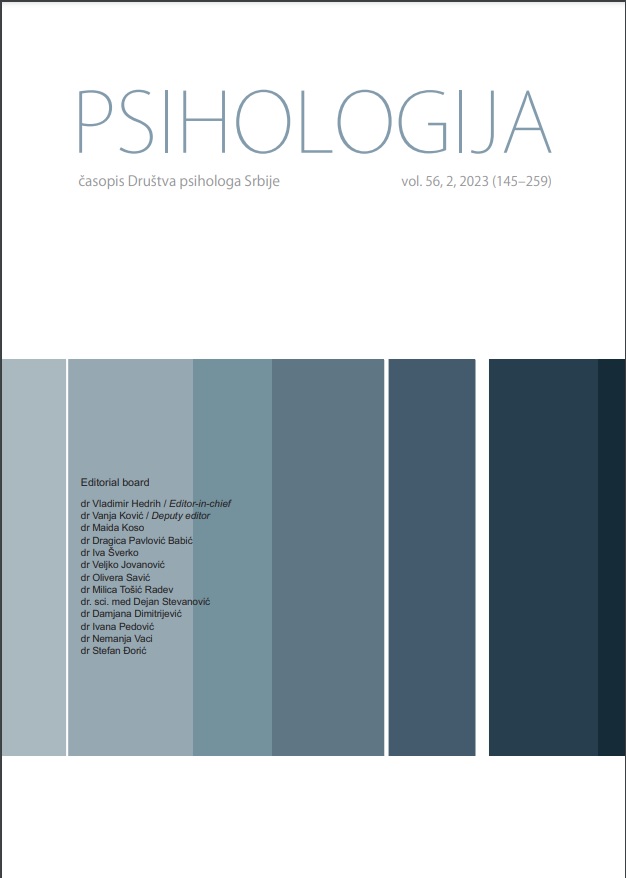The psychological determinants of emotional and external eating behavior in a university student sample from Turkey
The psychological determinants of emotional and external eating behavior in a university student sample from Turkey
Author(s): Serhat Ergun, Erdogdu Akca, Omer Yanartas, Zeynep Nur Demirok Akca, Ahmet Ozcercan, Kemal SayarSubject(s): Social Sciences, Psychology, Individual Psychology, Social psychology and group interaction, Clinical psychology
Published by: Društvo psihologa Srbije
Keywords: eating behavior; obesity; childhood adverse events; depression; anxiety, impulsivity
Summary/Abstract: Psychological factors and adverse childhood events at an early age have been poorly investigated in relation to risky eating behavior and obesity. The importance of this relationship grows as these behaviors are becoming public health problems. The main objective of the present study was to examine the effects of interrelated psychological factors such as childhood negative life events, symptoms of depression and anxiety, and impulsivity on eating behaviors in a university student sample in Turkey. A total of 414 undergraduate students (60.4% women) in Turkey, completed the Turkish versions of the Dutch Eating Behavior Questionnaire (DEBQ) to assess emotional eating and external eating and the CDC-Kaiser Permanent Adverse Childhood Experiences (ACE), Beck Depression Inventory (BDI), Beck Anxiety Inventory (BAI), and Barratt Impulsivity Scale-11 (BSI-11). Structural equation models (SEM) were used to evaluate whether depressive/anxiety symptoms could be a mediator between impulsivity and emotional eating/external eating. Childhood adverse events were both weakly correlated with eating behavior and impulsivity measures (r = .18,r = .275, p <.001, respectively). Depression and anxiety levels were found to be significantly associated with all variables except for the body mass index (BMI; r = .121‒.395, p <.001). Body mass index (BMI) was also significantly correlated with emotional eating (r = .231, p <.001) and restrained eating (r = .226, p <.001). Impulsivity was positively and directly associated with symptoms of anxiety and depression and emotional and external eating (respectively β = .27, p <.001; β = .31, p <.001; β = .16, p = .006; β = .13, p = .047). The effect of adverse experiences on both emotional eating (β = .147; 95% CI [.087 − .247]) and external eating (β = .091; 95% CI [.032 − .168]) was found to be partially mediated by impulsivity and symptoms of anxiety and depression. The results supported the proposition that symptoms of depression and anxiety levels are mediators between impulsivity and emotional eating/ external eating. This finding suggests that a through psychological assessment should be taken into consideration when evaluating the eating behavior of university students and prevention and treatment strategies applied for disordered eating behaviors in the future.
Journal: Psihologija
- Issue Year: 56/2023
- Issue No: 2
- Page Range: 239-257
- Page Count: 19
- Language: English, Serbian

